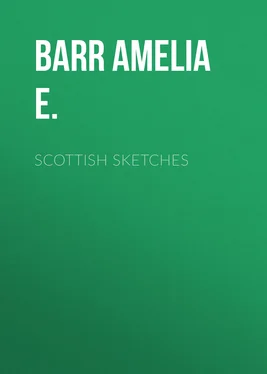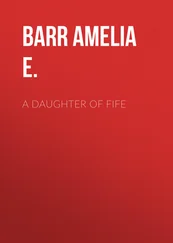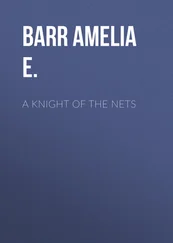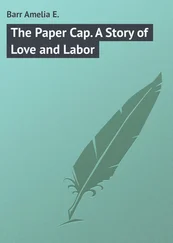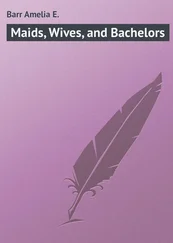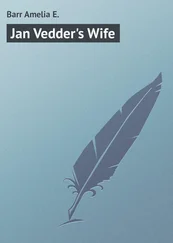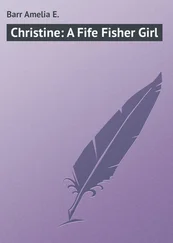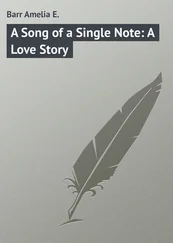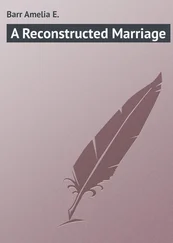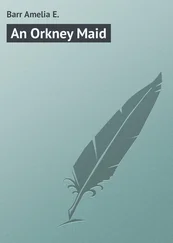Amelia Barr - Scottish sketches
Здесь есть возможность читать онлайн «Amelia Barr - Scottish sketches» — ознакомительный отрывок электронной книги совершенно бесплатно, а после прочтения отрывка купить полную версию. В некоторых случаях можно слушать аудио, скачать через торрент в формате fb2 и присутствует краткое содержание. Жанр: foreign_prose, foreign_antique, на английском языке. Описание произведения, (предисловие) а так же отзывы посетителей доступны на портале библиотеки ЛибКат.
- Название:Scottish sketches
- Автор:
- Жанр:
- Год:неизвестен
- ISBN:нет данных
- Рейтинг книги:4 / 5. Голосов: 1
-
Избранное:Добавить в избранное
- Отзывы:
-
Ваша оценка:
- 80
- 1
- 2
- 3
- 4
- 5
Scottish sketches: краткое содержание, описание и аннотация
Предлагаем к чтению аннотацию, описание, краткое содержание или предисловие (зависит от того, что написал сам автор книги «Scottish sketches»). Если вы не нашли необходимую информацию о книге — напишите в комментариях, мы постараемся отыскать её.
Scottish sketches — читать онлайн ознакомительный отрывок
Ниже представлен текст книги, разбитый по страницам. Система сохранения места последней прочитанной страницы, позволяет с удобством читать онлайн бесплатно книгу «Scottish sketches», без необходимости каждый раз заново искать на чём Вы остановились. Поставьте закладку, и сможете в любой момент перейти на страницу, на которой закончили чтение.
Интервал:
Закладка:
The offer was so stupendous, the future it looked forward to so great, Crawford never doubted Colin's proud, acquiescence. That much he owed to a long line of glorious ancestors; it was one of the obligations of noble birth; he would not dare to, neglect it.
Impatiently he waited Colin's answer. Indeed, he felt sure Colin would answer such a call in person. He was disappointed when a letter came; he had not known, till then, how sure he had felt of seeing his son. And the letter was a simple blow to him. Very respectfully, but very firmly, the proposition was declined. Colin said he knew little of parties and cabals, and was certain, at least, that nothing could induce him to serve under the Marquis of B–. He could not see his obligations to the dead Crawfords as his father did. He considered his life his own. It had come to him with certain tastes, which he meant to improve and gratify, for only in that way was life of any value to him.
The laird laid the letter in Tallisker's hands without a word. He was almost broken-hearted. He had not yet got to that point where money-making for money's sake was enough. Family aggrandizement and political ambition are not the loftiest motives of a man's life, but still they lift money-making a little above the dirty drudgery of mere accumulation. Hitherto Crawford had worked for an object, and the object, at least in his own eyes, had dignified the labor.
In his secret heart he was angry at Colin's calm respectability. A spendthrift prodigal, wasting his substance in riotous living, would have been easier to manage than this young man of æsthetic tastes, whose greatest extravagance was a statuette or a picture. Tallisker, too, was more uneasy than he would confess. He had hoped that Colin would answer his father's summons, because he believed now that the life he was leading was unmanning him. The poetical element in his character was usurping an undue mastery. He wrote to Colin very sternly, and told him plainly that a poetic pantheism was not a whit less sinful than the most vulgar infidelity.
Still he advised the laird to be patient, and by no means to answer Colin's letter in a hurry. But only fixed more firmly the angry father's determination. Colin must come home and fulfil his wish, or he must time remain away until he returned as master. As his son, he would know him no more; as the heir of Crawford, he would receive at intervals such information as pertained to that position. For the old man was just in his anger; it never seemed possible to him to deprive Colin of the right of his heritage. To be the 13th Laird of Crawford was Colin's birthright; he fully recognized his title to the honor, and, as the future head of the house, rendered him a definite respect.
Of course a letter written in such a spirit did no good whatever. Nothing after it could have induced Colin to come home. He wrote and declined to receive even the allowance due to him as heir of Crawford. The letter was perfectly respectful, but cruelly cold and polite, and every word cut the old man like a sword.
For some weeks he really seemed to lose all interest in life. Then the result Tallisker feared was arrived at. He let ambition go, and settled down to the simple toil of accumulation.
CHAPTER VI
But Crawford had not a miser's nature. His house, his name, his children were dearer, after all, to him than gold. Hope springs eternal in the breast; in a little while he had provided himself with a new motive: he would marry Helen to young Farquharson, and endow her so royally that Farquharson would gladly take her name. There should be another house of Crawford of which Helen should be the root.
Helen had been long accustomed to consider Hugh Farquharson as her future husband. The young people, if not very eager lovers, were at least very warm and loyal friends. They had been in no hurry to finish the arrangement. Farquharson was in the Scot's Greys; it was understood that at his marriage he should resign his commission, so, though he greatly admired Helen, he was in no hurry to leave the delights of metropolitan and military life.
But suddenly Crawford became urgent for the fulfilment of the contract, and Helen, seeing how anxious he was, and knowing how sorely Colin had disappointed him, could no longer plead for a delay. And yet a strange sadness fell over her; some inexplicable symptoms as to her health led her to fear she would never be Farquharson's wife; the gay wedding attire that came from Edinburgh filled her with a still sorrow; she could not appropriate any part of it as her own.
One day when the preparations were nearly finished, Tallisker came up to the Keep. Helen saw at once that he was moved by some intense feeling, and there was a red spot on his cheeks which she had been accustomed to associate with the dominie's anger. The laird was sitting placidly smoking, and drinking toddy. He had been telling Helen of the grand house he was going to build on the new estate he had just bought; and he was now calmly considering how to carry out his plans on the most magnificent scale, for he had firmly determined there should be neither Keep nor Castle in the North Country as splendid as the new Crawfords' Home.
He greeted Tallisker with a peculiar kindness, and held his hand almost lovingly. His friendship for the dominie—if he had known it—was a grain of salt in his fast deteriorating life. He did not notice the dominie's stern preoccupation, he was so full of his own new plans. He began at once to lay them before his old friend; he had that very day got the estimates from the Edinburgh architect.
Tallisker looked at them a moment with a gathering anger. Then he pushed them passionately away, saying in a voice that was almost a sob, "I darena look at them, laird; I darena look at them! Do you ken that there are fourteen cases o' typhus in them colliers' cottages you built? Do you remember what Mr. Selwyn said about the right o' laborers to pure air and pure water? I knew he was right then, and yet, God forgive me! I let you tak your ain way. Six little bits o' bairns, twa women, and six o' your pit men! You must awa to Athol instanter for doctors and medicines and brandy and such things as are needfu'. There isna a minute to lose, laird."
Helen had risen while he was speaking with a calm determination that frightened her father. He did not answer Tallisker, he spoke to her: "Where are you going, Helen?"
"Down to the village; I can do something till better help is got."
"Helen Crawford, you'll bide where you are! Sit still, and I'll do whatever Tallisker bids me."
Then he turned angrily to the dominie.
"You are aye bringing me ill tidings. Am I to blame if death comes?"
"Am I my brother's keeper? It's an auld question, laird. The first murderer of a' asked it. I'm bound to say you are to blame. When you gie fever an invite to your cotters' homes, you darena lay the blame on the Almighty. You should hae built as Mr. Selwyn advised."
"Dominie, be quiet. I'm no a bairn, to be hectored o'er in this way. Say what I must do and I'll do it—anything in reason—only Helen. I'll no hae her leave the Keep; that's as sure as deathe. Sit down, Helen. Send a' the wine and dainties you like to, but don't you stir a foot o'er the threshold."
His anger was, in its way, as authoritative as the dominie's. Helen did as she was bid, more especially as Tallisker in this seconded the laird.
"There is naething she could do in the village that some old crone could not do better."
It was a bitterly annoying interruption to Crawford's pleasant dreams and plans. He got up and went over to the works. He found things very bad there. Three more of the men had left sick, and there was an unusual depression in the village. The next day the tidings were worse. He foresaw that he would have to work the men half time, and there had never been so many large and peremptory orders on hand. It was all very unfortunate to him.
Читать дальшеИнтервал:
Закладка:
Похожие книги на «Scottish sketches»
Представляем Вашему вниманию похожие книги на «Scottish sketches» списком для выбора. Мы отобрали схожую по названию и смыслу литературу в надежде предоставить читателям больше вариантов отыскать новые, интересные, ещё непрочитанные произведения.
Обсуждение, отзывы о книге «Scottish sketches» и просто собственные мнения читателей. Оставьте ваши комментарии, напишите, что Вы думаете о произведении, его смысле или главных героях. Укажите что конкретно понравилось, а что нет, и почему Вы так считаете.
